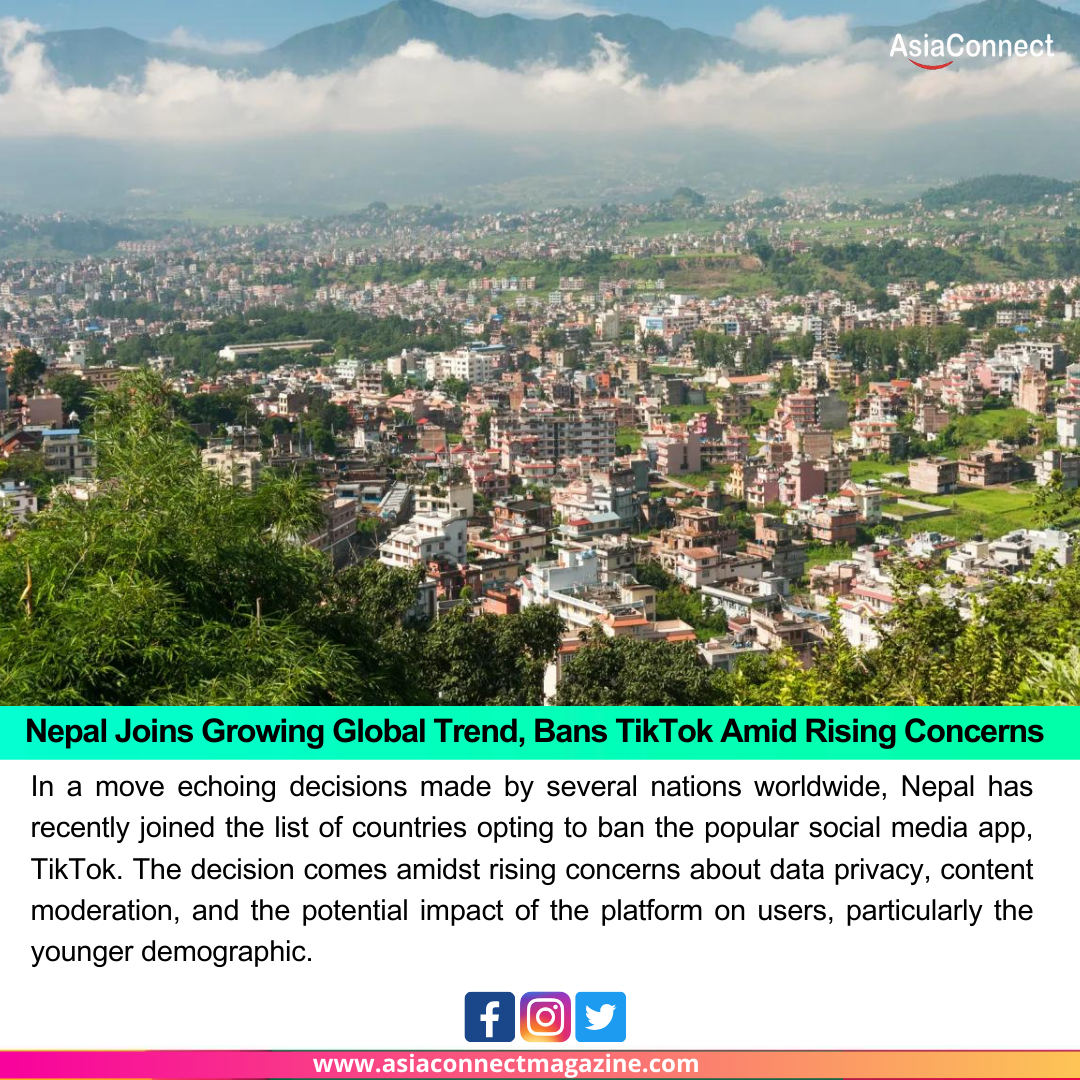In a move echoing decisions made by several nations worldwide, Nepal has recently joined the list of countries opting to ban the popular social media app, TikTok. The decision comes amidst rising concerns about data privacy, content moderation, and the potential impact of the platform on users, particularly the younger demographic.
Background:
TikTok, a platform owned by the Chinese company ByteDance, has experienced explosive growth since its global launch. However, it has faced increasing scrutiny and criticism, prompting many countries to reassess its role and influence, especially among younger users.
Nepal’s Decision:
Nepal’s decision to ban TikTok reflects a growing global trend of countries reevaluating the implications of allowing the app to operate within their borders. The move is driven by concerns about user data security, the potential for the spread of inappropriate content, and the perceived impact on societal values.
Data Privacy Concerns:
One of the primary reasons cited by Nepal for banning TikTok is the concern over data privacy. Governments around the world have raised questions about how TikTok handles user data, and the fear of potential misuse or unauthorized access has led to a reassessment of the app’s compliance with privacy regulations.
Content Moderation Issues:
TikTok has often come under fire for its content moderation policies. Concerns about the proliferation of inappropriate or harmful content, as well as the platform’s ability to effectively moderate and filter such material, have been key factors in the decision-making process for countries like Nepal.
Impact on Younger Users:
The ban also reflects worries about the impact of TikTok on the younger generation. Critics argue that the platform may expose young users to content that is not age-appropriate or might influence their behavior negatively. Governments, including Nepal, are increasingly mindful of the potential societal implications of unregulated social media use, particularly among adolescents.
Global Trend:
Nepal’s decision to ban TikTok aligns with a broader global trend. India, the United States, Indonesia, and several other countries have taken similar steps in recent years. These actions highlight the increasing recognition among nations that the unchecked proliferation of certain social media platforms may pose risks that outweigh their perceived benefits.
Alternatives and Mitigation Efforts:
As countries ban TikTok, alternative platforms are emerging to fill the void. Some nations are even exploring the development of their domestic alternatives. Simultaneously, social media companies are becoming increasingly aware of the need to address concerns related to data privacy, content moderation, and the impact of their platforms on users, implementing measures to mitigate these issues.
Public Reaction and Challenges:
While the ban may be a government response to perceived risks, it also raises questions about the role of state intervention in regulating online platforms. Public reactions to such bans are mixed, with some supporting the move for safety reasons and others expressing concerns about potential restrictions on freedom of expression.
Conclusion:
Nepal’s decision to ban TikTok reflects a global conversation about the responsibilities of social media platforms and the potential risks associated with their unregulated use. As countries around the world grapple with these challenges, the evolving landscape of social media regulation continues to shape the digital experiences of millions of users. The ban in Nepal is not merely a national response but is part of a broader international trend where governments are taking steps to safeguard their citizens in the digital age.





